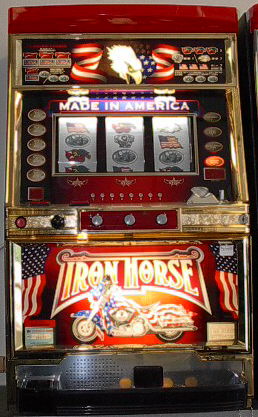There are six expected bidders for the upcoming Maryland Jockey Club auction, according to Frank Angst for Thoroughbred Times. On January 6th, Angst wrote that the sale of the club, to be held by the United States Bankruptcy Court for the District of Delaware, had been rescheduled for January 21st. However, on January 18th, Angst reports that the auction has been rescheduled for the second time to February 10th at a New York law office due to mounting concerns by the state of Maryland to keep the Preakness in state.
The Maryland Jockey Club, currently owned by Magna Entertainment, controls Laurel Park and Pimlico, home of the Preakness. Magna Entertainment’s bankruptcy proceedings are further complicated as a majority of its business is owned by MI Developments, a real estate operating company. An article posted on January 11th on the Wall Street Journal Web site details the arrangements between the companies.
To throw yet another log in the fire, the controversial issue of slot machines comes into play. The Maryland Jockey Club is a proponent of developing slots at Laurel Park—as proposed by at least one of its bidders, most vocally (they issued a press release) by Blow Horn Equity LLC of West Grove, Pennsylvania. (Personally, I’m on board with this as well because slots at Laurel Park will allow for improvements at the track. This will help keep the focus on horses and racing, which to me is much more exciting to watch than a slot machine screen.)
On the other hand, the Anne Arundel County Council voted on December 21st to pass two new zoning bills that will allow Anne Arundel County to develop casinos at both Laurel Park and a new 4,750-slot casino that would become the largest in the state, if built. The casino, which would be built at Arundel Mills mall, is proposed by the Maryland Jockey Club bidder Cordish Companies of Baltimore. The mall casino comes highly contested, which is unsurprising, to say the least.

The county’s need for revenue has seemingly surpassed the concerns of some of its residents who feel that the mall casino will bring in undue traffic and noise. John Wagner of The Washington Post writes that within a few years, “the mall casino could generate more than $500 million a year, about half of which would be earmarked for state education programs, according to consultants hired by the state.”
Still, like many counties in Maryland, Anne Arundel County allows the opportunity for a ballot referendum—in this case, if 19,000 signatures of registered voters are obtained. If the petition is a success, citizens will be able to vote on the issue—and potentially reject the casino site. The Maryland Jockey Club has hired the Washington-based firm FieldWorks to help obtain signatures for the petition efforts already underway. A more local effort is being made by Stop Slots at Arundel Mills as they gather signatures through volunteers. In an attempt to smooth things over, Cordish Companies reportedly unveiled their casino plans to Anne Arundel County residents on January 13th, according to the Maryland Gazette.
While the number of casinos Maryland may have remains unseen, one thing is for certain: big change is in the air. Let’s just hope we keep quality racing events like the Preakness in Maryland.
Keep an eye out for the upcoming bid for the Maryland Jockey Club rescheduled for Wednesday, February 10th.